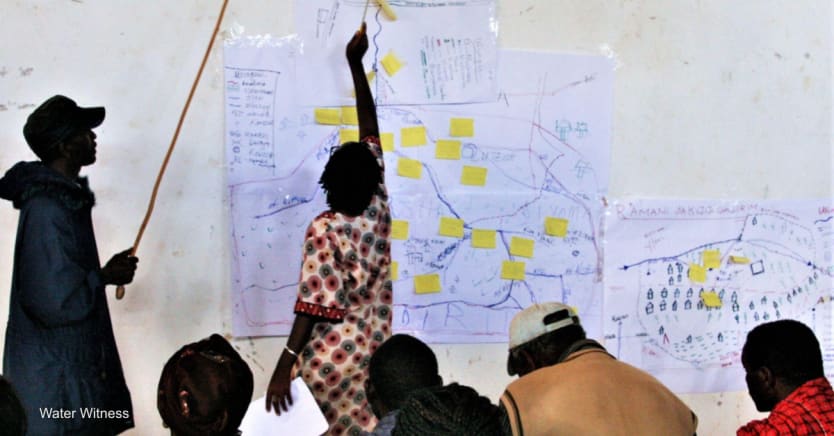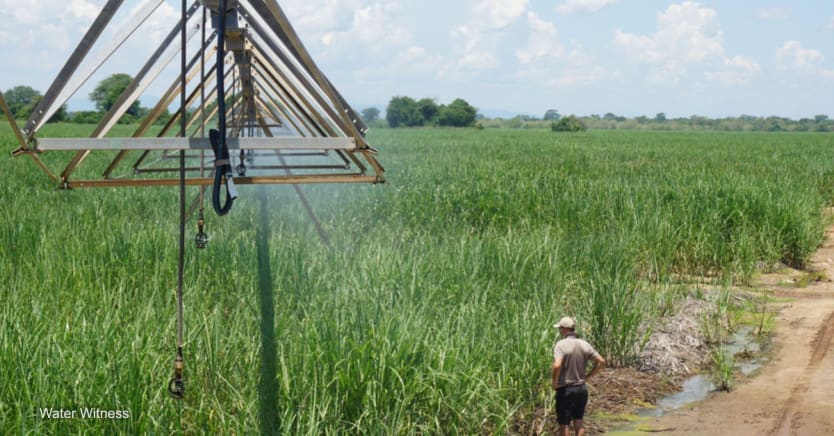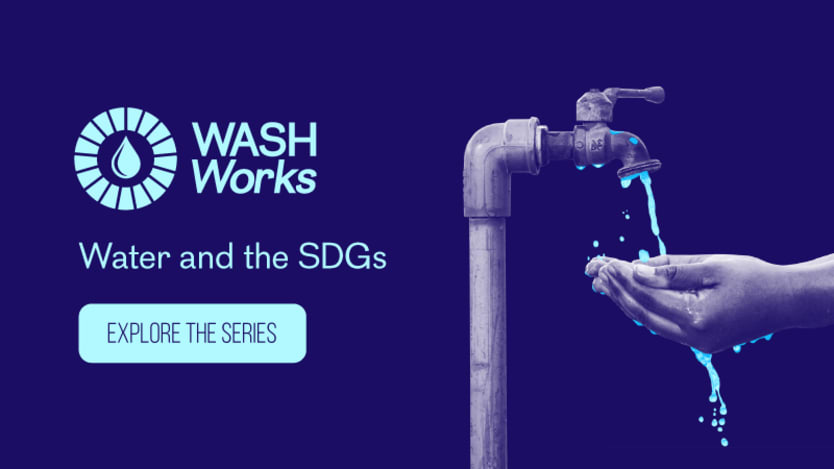
Given this year’s devastating cuts to U.K. aid for WASH, the country’s government seems an unlikely ally in the struggle for shared water security in Africa. But through the leadership of Zac Goldsmith, the minister of state for the environment, and support from Water Witness International and CDP, the U.K. has rallied governments, multinational corporations, and banks to sign the groundbreaking Glasgow Declaration for Fair Water Footprints at the United Nations Climate Change Conference this month.
The declaration, which commits its signatories to zero water pollution and sustainable water use by 2030, represents a breakthrough moment for water and climate justice in Africa and elsewhere around the world, and here’s why.
Over 60% of the United Kingdom’s water footprint — the water used to produce the country’s food, clothes, and goods — is overseas, often in places that face an increasingly chaotic climate and where communities lack access to safe water. This means that each British household typically uses 74 bathtubs of other people’s water every single day.
Irresponsible use of water in supply chains can exacerbate droughts, water conflict, and pollution. About half of the United Kingdom’s water footprint lands in places where it exceeds the sustainable limit, contributing to water resource depletion and degradation all over the world.

“How Fair Is Fashion’s Water Footprint?” — a recent report from Water Witness — shows why change is needed. The fashion sector has flocked to Africa, where making clothes for high-street brands has the potential to create much-needed jobs and investment. But evidence from Lesotho, Madagascar, Mauritius, and Tanzania shows how factories involved are polluting local rivers and, in the worst cases, denying access to safe water and sanitation to communities and workers.
Unethical business practices
From textiles and mining to food production and agricultural commodities, Africa’s potential is being eroded by unethical business practices. Trade with Africa must no longer be based on the overexploitation of our natural resources, tragic conditions for our workers, or driving vulnerability within our communities.
Ending the abuse of our water is a top priority, but the hands of our own governments are often tied. Jobs and investment are so badly needed that enforcing pollution control laws is almost impossible; increased costs will lead global buyers to simply shift production to another country where regulation remains lax.
The global market for Africa’s commodities and the multinationals and global financiers behind it are driving the race to the bottom of Africa’s water barrel — radical change must happen here.
—The solutions needed to ensure responsible water use are already at hand. Multinationals and the factories, farms, and mines producing for them can be certified against water stewardship standards and made to disclose their performance. Those who profit from water footprints — the banks, pension funds, and investors — can be held to account for due diligence, the advancement of human rights, and divestment from water abusers and polluters.
Governments can enforce good water stewardship and legislate so that businesses respect water, no matter where they operate. Civil society groups and the media can investigate, speak out, and snap at heels to make change happen. The public and consumers can demand change to end the abuse of water within their supply chains. All of this is possible. The leadership and shared commitment to make it happen have been lacking until now.
Water footprints a ‘force for good’?
The answer is not necessarily to reduce our water footprints. Water is not like carbon. Where water is used fairly, your footprints can be a force for good, supporting livelihoods and development.

Inspiring examples show what can be achieved by demanding a fair water footprint. Sukambizi Association Trust, Malawi’s biggest tea cooperative, supports over 11,000 smallholder tea farmers and supplies the supermarket chain Sainsbury’s, and has championed water stewardship to improve access to safe water and protect catchment forests.
Farmers supplying Diageo in Africa have been able to access weather-indexed insurance and conservation farming techniques to boost their resilience to drought. Clothing manufacturers for H&M in Ethiopia can now prove they are pollution free, and provide safe water, sanitation, and hygiene to thousands of female employees.
Devex in your ears: The WASH Works podcast
Listen to the latest episode “WASH as a solution to climate change,” and in case you missed the first two episodes, you can listen to them through Apple Podcasts, Spotify, or Spreaker.
The global market for Africa’s commodities and the multinationals and global financiers behind it are driving the race to the bottom of Africa’s water barrel — radical change must happen. The Glasgow Declaration for Fair Water Footprints represents the leadership ambition and shared commitment needed to trigger this change and to make water stewardship the business norm rather than the exception.
Its founding signatories include governments of some of the high-income and low-income countries on the planet — including the U.K., Finland, Austria, Peru, Panama, Madagascar, and Malawi — global corporations and banks, and NGOs and other civil society groups. Their potential to advance system change and real action so that our consumption patterns protect and respect local communities and nature makes this an exciting moment.
If we are to achieve the Sustainable Development Goals by 2030 we need many others to sign up — and quickly. This declaration is an important step — and potentially a giant leap — toward the fairer water footprints that we all need.
Visit the WASH Works series for more coverage on water, sanitation, and hygiene — and importantly, how WASH efforts intersect with other development challenges. You can join the conversation using the hashtag #WASHWorks.

Search for articles
Most Read
- 1
- 2
- 3
- 4
- 5
